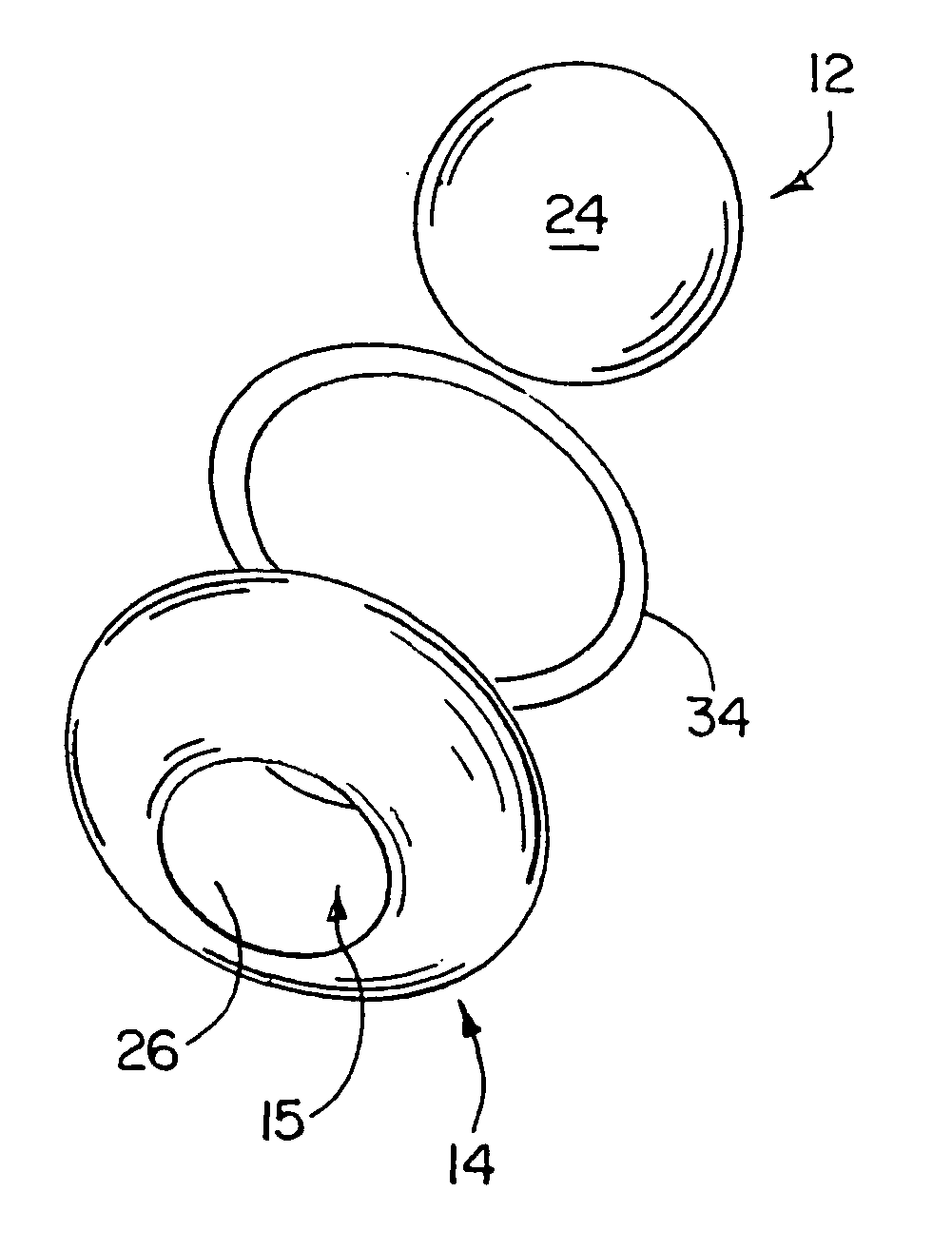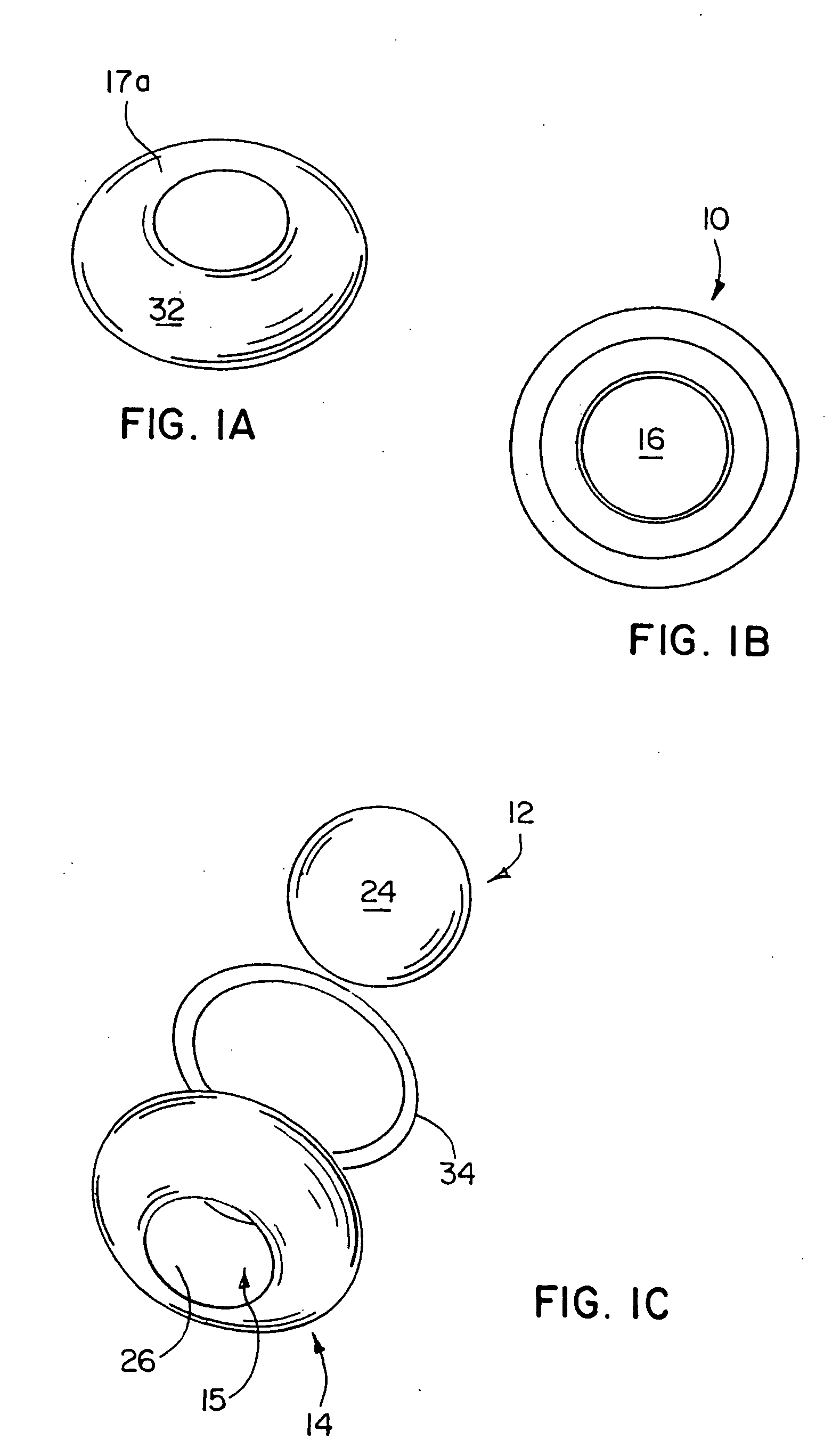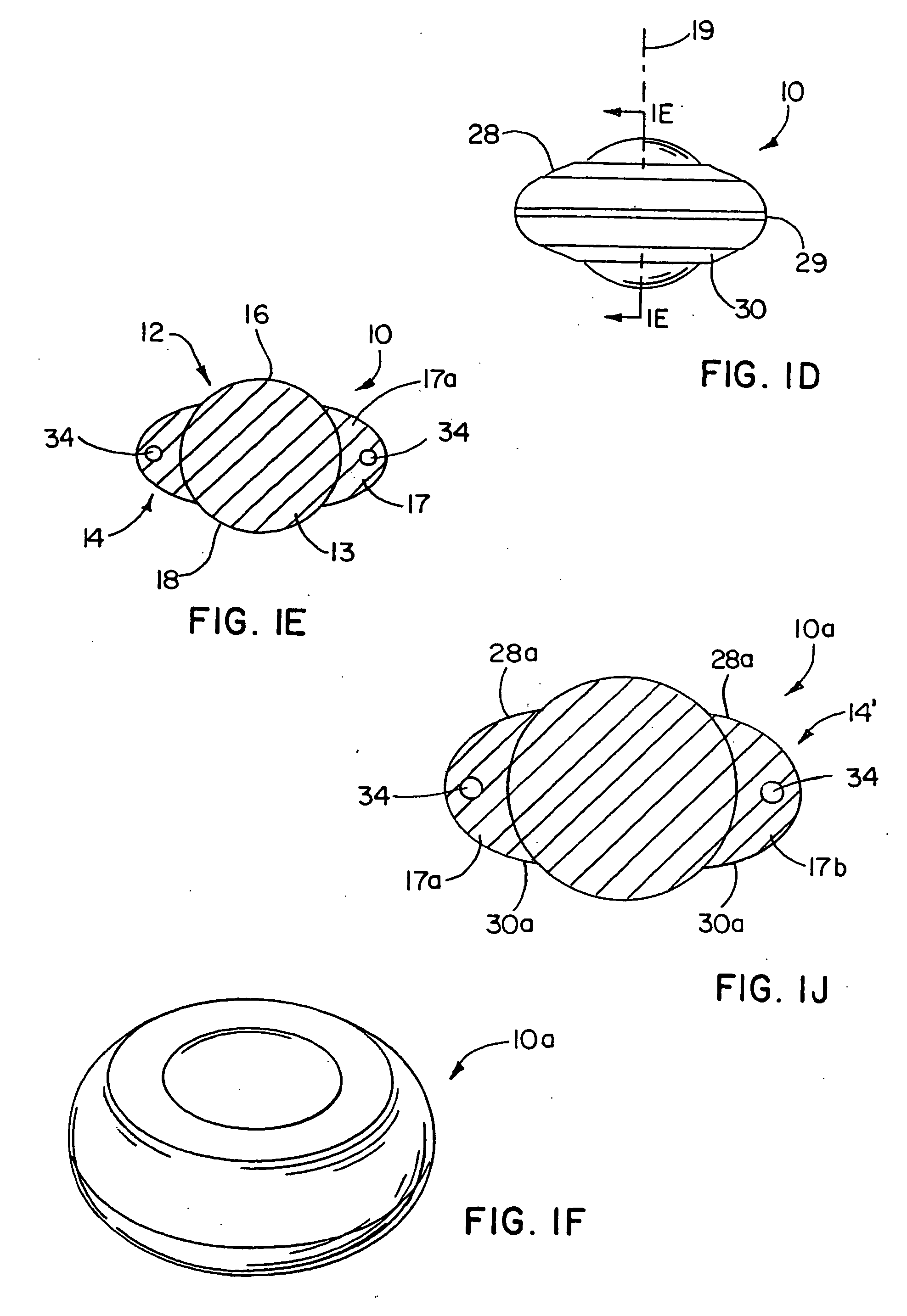Artificial disc device
a technology of discs and discs, applied in the field of artificial disc devices, can solve the problems of end plates prone to subsidence or fall around the ball, require more complex shapes, so as to reduce stress and wear that would otherwise occur in either of the interfaces, take up compressive loading, and reduce the effect of stress and wear
- Summary
- Abstract
- Description
- Claims
- Application Information
AI Technical Summary
Benefits of technology
Problems solved by technology
Method used
Image
Examples
Embodiment Construction
[0028] Referencing FIGS. 1A-1E, an artificial disc device 10 is shown which includes an enlarged, central bearing portion 12, and a substantially annular, outer bearing portion 14 having a through opening 15 in which the central bearing portion 12 is disposed. Herein, preferred shapes, configurations and material selections for the inner and outer bearing portions are set forth. However, in each case, these selections are not meant to be limiting as other selections that serve the purpose of the disc implant described herein are also contemplated. Likewise, several embodiments are disclosed that have structural features that can be implemented substantially interchangeably among the disc implants.
[0029] In the form illustrated in FIGS. 1A-1E, the central bearing 12 has an axially enlarged body 13 relative to the outer bearing 14 so that it generally includes arcuate surface portions 16 and 18 that project above and below the radially outer bearing portion 14 for engaging in indents...
PUM
| Property | Measurement | Unit |
|---|---|---|
| thickness | aaaaa | aaaaa |
| thickness | aaaaa | aaaaa |
| distance | aaaaa | aaaaa |
Abstract
Description
Claims
Application Information
 Login to View More
Login to View More - R&D
- Intellectual Property
- Life Sciences
- Materials
- Tech Scout
- Unparalleled Data Quality
- Higher Quality Content
- 60% Fewer Hallucinations
Browse by: Latest US Patents, China's latest patents, Technical Efficacy Thesaurus, Application Domain, Technology Topic, Popular Technical Reports.
© 2025 PatSnap. All rights reserved.Legal|Privacy policy|Modern Slavery Act Transparency Statement|Sitemap|About US| Contact US: help@patsnap.com



